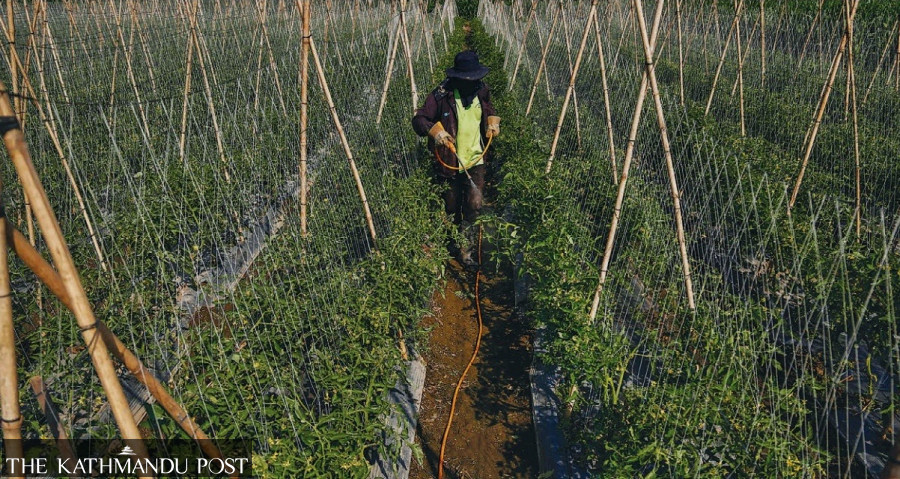Health
High levels of pesticides found in seven vegetables
Excessive amounts of pesticides are used in cauliflower, yardlong beans and other off seasonal vegetables.
Arjun Poudel
At least seven types of green vegetables including yardlong beans and gourds have been destroyed and 11 others quarantined after excessive amounts of hazardous pesticides were detected in them.
The vegetables were either destroyed or sent into quarantine in the last two and a half months, according to the Central Agriculture Laboratory under the Department of Agriculture that runs rapid bioassays of pesticide residue (RBPR).
“Five types of vegetables were destroyed in Jhapa, which were imported from India and two types of vegetables were destroyed in Kathmandu,” Prakash Ghimire, plant protection officer and chief of RBPR laboratory, Kalimati, told the Post.
“Some of the vegetables were released after the pesticides residue in them declined following two days of quarantining.”
Authorities have been carrying out tests for organophosphate and carbamate pesticides in fruits and vegetables on a regular basis.
Officials say excessive amounts of hazardous pesticides are used in cauliflower, yardlong beans and other off seasonal vegetables.
“If high levels of pesticides are found, we take the vegetables under control and send them into quarantine,” said Ghimire. “Tests are performed on the quarantined vegetables every two days to check the pesticides residue level and if the residue has declined to an acceptable level, we return the vegetables to the traders.”
Farmers use pesticides to protect crops from insects, weeds, fungi and other pests. According to the World Health Organisation, pesticides can be potentially toxic to humans and can have both acute and chronic health effects depending on the quantity and ways in which a person is exposed to them.
Testing vegetables and fruits for hazardous pesticides including organophosphate and carbamate is a regular work that the authorities have been carrying out from various labs across the country.
There are seven labs—one each in five provinces—1, 2, Bagmati Province, Gandaki Province, and in Sudurpaschim Province, two in Lumbini Province—that run rapid bioassays of pesticide residue.
Officials say use of hazardous pesticides, herbicides, fertilizers have been on the rise in Nepal in recent years.
Doctors say long-term consumption of vegetables and fruits with high levels of pesticides can lead to renal failure, heart and lung diseases, mental health problems and cancer. Consumption of such fruits and vegetables may also affect pregnant women and harm fetuses.
Pesticides are commonly used to kill insects, fungi, weeds and diseases, which damage plants and crops. Every year over 600 metric tons of various types of pesticides including insecticide, fungicide, herbicide and biopesticide are brought into Nepal.
In the fiscal year 2019/2020, 681 metric tons of 163 types of pesticides were imported, according to the Plant Protection Directorate of the Ministry of Agriculture and Livestock Development.




 20.12°C Kathmandu
20.12°C Kathmandu















